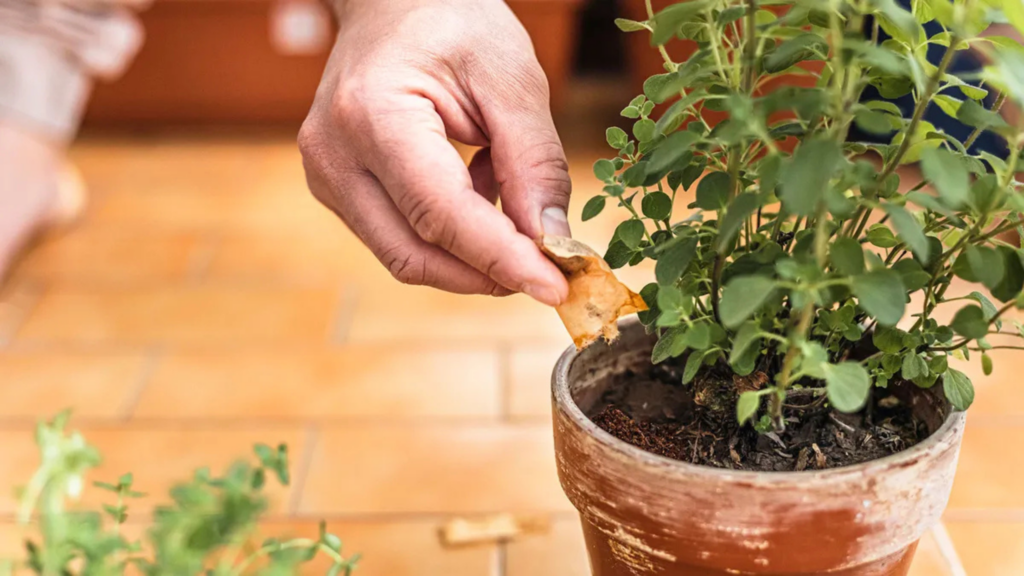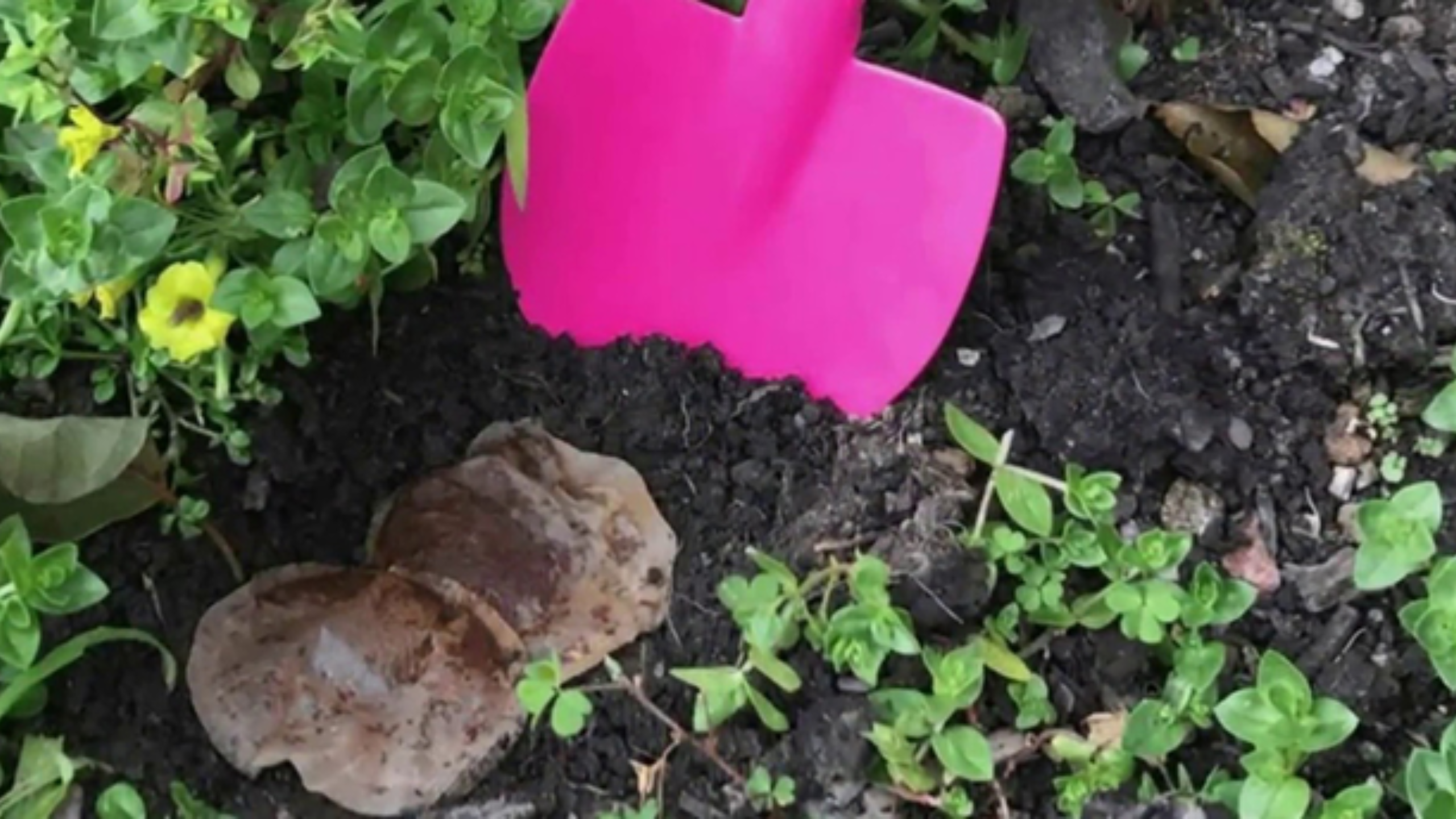Have you ever thought about what happens to those used tea bags after you finish your cup? You might be surprised to learn that they can play a significant role in enhancing your garden’s health! Instead of tossing them in the trash, consider the many innovative ways to give those tea bags a second life. Here are seven useful methods for reusing old tea bags in your gardening endeavors.

1. Composting Benefits
Used tea bags make excellent contributions to compost heaps. They are rich in organic matter and can serve as beneficial fertilizers—as long as the bags are compostable. Their fibrous material helps retain moisture in the compost and speeds up decomposition. Just remember to avoid bags that contain synthetic materials like polypropylene.
2. Moisture Retention for Roots
A simple trick for keeping the roots of your plants hydrated is to place used tea bags at the bottom of pots. Position them over the drainage holes or on top of the drainage layer. This method helps maintain a steady moisture level for your plants, supporting their growth.
3. Skin and Hair Enhancements
Don’t let those tea bags go to waste! They can be effective deodorizing scrubs that remove stubborn odors like garlic or fish from your hands. You can also soak your feet in warm water with used bags to neutralize foot odor, soften calluses, and nourish your skin. For an antioxidant treat, toss them into your bath for soothing skin benefits.
4. Lawn Restoration
If your lawn has bare patches, used tea bags can help revitalize it. Place damp tea bags on the affected areas and sprinkle grass seeds on top. As the bags break down, they supply moisture and nutrients essential for grass growth. Some gardeners also soak grass seeds in brewed tea before sowing them.
5. Natural Fertilizer
Tea bags act as a natural fertilizer when buried near your plants. Upon decomposition, they release important nutrients like nitrogen, enhancing the soil quality and helping nearby vegetation thrive. Spread used tea bags around your garden to boost fertility and reduce weed growth.
6. Feeding Acid-Loving Plants
Tea varieties such as black, green, white, and oolong contain tannic acid, which can benefit acid-loving plants like azaleas, ferns, and hydrangeas. Simply soak used tea bags in water overnight and use the liquid to irrigate these plants. This practice can improve soil acidity, providing vital nutrients such as potassium and phosphorus.
7. Organic Pest Deterrent
The tannic acid in tea bags may help ward off certain pests and maggots in your garden. While it might not repel all types of unwanted visitors, placing used tea bags near plant roots or adding them to your compost could naturally deter pests. They may also attract beneficial earthworms that enhance soil quality.
If you have tea bags that are not compostable, don’t fret. Dry them out, remove the leaves, and mix with chelated iron as a potent plant enhancer. Adding this mixture to your soil can significantly improve plant vigor and health.
So the next time you brew a pot of tea, think twice before discarding those bags. By repurposing them in your garden, you can not only minimize waste but also promote healthier plants and richer soil. Get creative and start your eco-friendly gardening journey today!


https://t.me/officials_pokerdom/3860
https://t.me/dragon_money_mani/33
Übersichtlich auf der linken Seite angeordnet kannst du durch die einzelnen Kategorien klicken. Auch die Navigation schneidet im Lord Lucky Testbericht gut ab.
Falls du nach einem bestimmten Titel oder Softwarehersteller suchst,
kannst du das Wort eintippen und bekommst die Ergebnisse blitzschnell.
Verwende den Bonus Code „WELCOME“ bei deiner ersten Einzahlung.
Während viele Online Casinos ihren neuen Spielern den Bonus direkt gutschreiben, lässt dir
Lord Lucky die Wahl. Wer danach Stammkunde werden will, bekommt aber noch mehr
geboten. Solltest du es dabei bis zu den Free Spins schaffen, könnte dich eine königliche
Belohnung erwarten. Oben drauf erhältst du noch 25 Freispiele
am beliebten Book of Dead Slot. Mit deiner ersten Einzahlung gibt es dann
100% bis 500€.
Zudem wird die Anzahl der Spielehersteller gelobt. Diese Grenzwerte können je Tag, Woche oder Monat festgelegt werden. Als Kunde von dem
Casino haben Sie zudem die Möglichkeit sich Limits bezüglich
Gemäß den Vorschriften ist Lord Lucky an LUGAS und OASIS angeschlossen.
References:
https://online-spielhallen.de/exklusive-total-casino-promo-codes-ihr-leitfaden-fur-bessere-boni/
Read on to find out more about the differing nature of territories and the best
land based casinos within them. Casinos are booming in Australia
right now and whatever your game is and wherever you live, there is a casino for you.
Just show your Crown Rewards Card when you pay or play and you can start earning points, which you can redeem for Crown experiences like dining, gaming,
hotels stays and much more. There are 13 casinos across Australia owned by Echo Entertainment
Group, SKYCITY, Crown, and some independently owned venues, as
well. You are responsible for verifying your local laws before participating in online gambling.
Ziv Chen has been working in the online gambling industry for over
two decades in senior marketing and business development roles.
The Adelaide Casino is part of the Skycity Entertainment Group,
which is a New Zealand-based ownership company.
The Star Gold Coast is located on Casino Drive in Broadbeach about an hour’s drive from Brisbane, with this part of Australia a big drawcard
with tourists, largely because of its pristine
beaches and glorious weather. The Treasury is located on George Street in Central Brisbane in one of the
most beautiful heritage listed buildings in QLD. This has meant NSW Liquor
and Gaming has blocked the casino from opening, pending an investigation into the company.
Many of the facilities at Crown Sydney opened in early 2021, but
the gambling facilities face an uncertain future, after Crown Resorts admitted to money
laundering in some of its VIP accounts in other states.
If you have ever visited the Victorian capital you will have seen the casino, with
it dominating the skyline.
References:
https://blackcoin.co/skycrown-online-casino-au-pokies-payid-neosurf-fast-payouts/
A VIP program is a special scheme designed to reward regular and high roller casino
players. By simply sharing their favorite pastime with
friends, players can earn rewards that extend their gaming sessions
and improve their potential winnings. They add a thrilling
twist to the traditional slots experience as players vie not just for individual round
wins but overall victory. It broadens the gaming experience, increases the thrill of discovery, and adds an extra layer of excitement to their casino journey, making it
even more engaging and rewarding.
Other promotions include weekly and monthly bonuses, birthday gifts, free spins, tournaments, and also loyalty points earned by regular playing.
So, as you can see, one is able to get a huge amount of real money for playing.
The full list of online casino reviews is in the “Reviews”
section of the main menu of our site. If you would like to find the best all Australian online
casino, check our all Australian casino reviews.
From the website design and animations to how intuitive everything is, the
entire experience is just better than any other Australian online casino at the moment.
Every time our group studies the casinos we all compare the most important
element that may defines a really good corporation which uncovers Australian casinos
online. Countless number of players are
fond of online slots by uncomplicated gaming which usually is not going to demand any sort of practice nor methods.
Considering to play Au casinos online, in place of the traditional
offline alternatives, certainly gives its privileges,
simplified access appearing to be among the first to think over.
References:
https://blackcoin.co/kangaroo88-casino-a-decade-of-winning-experience/
online casino mit paypal
References:
jobcop.ca
online slot machines paypal
References:
play.kkk24.kr